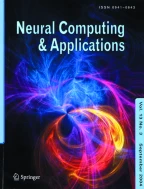Abstract
Vehicle positioning and vehicle identification of natural scene images are an important part of intelligent transportation systems and unmanned driving research. In current situation, there are still some problems in vehicle intelligent wireless positioning. In order to improve the intelligent wireless positioning efficiency of vehicles, based on the convolutional neural network, this research combines the concept of deep learning to carry out algorithm innovation in the research. Moreover, this paper combines the actual vehicle positioning problem points to collect data, simulates the vehicle positioning situation in a variety of complex situations, and designs a controlled test to verify. The results show that the algorithm of this study has certain effects, which can provide reference for subsequent related research and has certain practical significance.
Similar content being viewed by others
Explore related subjects
Discover the latest articles, news and stories from top researchers in related subjects.References
Netland Ø, Farstad JMG, Welo T (2017) Design of a modular extrusion-based aluminum monorail system for highly accurate car positioning. Procedia CIRP 60:8–13
Zhining G, Wei G, Chaoyang L et al (2018) An adaptive method for switching between pedestrian/car indoor positioning algorithms based on multilayer time sequences. Sensors 18(3):711
Nguyen P, Nguyen H, Nguyen D et al (2017) ParkSense: automatic parking positioning by leveraging in-vehicle magnetic field variation. IEEE Access 99:1
Guo ZG, Mak KL (2004) A heuristic algorithm for the stochastic vehicle routing problems with soft time windows. In: Proceedings of the 2004 congress on evolutionary computation (IEEE Cat. No. 04TH8753), vol 2. IEEE, pp 1449–1456
Liew LS, Wong WSH (2014) Indoor positioning method based on inertial data, RSSI and compass from handheld smart-device. In: Proceedings of the 2014 international conference on computer, communications, and control technology (I4CT). IEEE, pp 48–52
Shi X, Anderson BDO, Mao G et al (2016) Robust localization using time difference of arrivals. IEEE Signal Process Lett 23(10):1320–1324
Ou CH (2014) A roadside unit-based localization scheme for vehicular ad hoc networks. Int J Commun Syst 27(1):135–150
Hsu HH, Chen CC (2010) RFID-based human behavior modeling and anomaly detection for elderly care. Mob Inf Syst 6(4):341–354
Li L, Yang W, Bhuiyan MZA et al (2016) Unsupervised learning of indoor localization based on received signal strength: unsupervised learning of indoor localization. Wirel Commun Mob Comput 16(15):2225–2237
Bounini F, Gingras D, Lapointe V, et al (2015) Autonomous vehicle and real time road lanes detection and tracking. In: Proceedings of the 2015 IEEE vehicle power and propulsion conference (VPPC). IEEE, pp 1–6
Sakr AH, Bansal G (2016) Cooperative localization via DSRC and multi-scnsor multi-target track association. In: Proceedings of the IEEE, international conference on intelligent transportation systems. IEEE, pp 66–71
JinmingH A (2017) Method of BDS/GPS RTK positioning based on MCAR algorithm for medium-baseline. Geomat Inf Sci Wuhan Univ 42(9):1216–1222
Auer M, Rehborn H, Molzahn SE et al (2017) Traffic services for vehicles: the process from receiving raw probe data to space-time diagrams and the resulting traffic service. Front Eng Manag 4(4):490–497
Alejandro C, Guillem B, Antoni M et al (2017) Autonomous car parking system through a cooperative vehicular positioning network. Sensors 17(4):848
Sheng-Shih W (2018) A BLE-based pedestrian navigation system for car searching in indoor parking garages. Sensors 18(5):1442
Wenwei Z, Chi G, Jingnan L et al (2018) A police and insurance joint management system based on high precision BDS/GPS positioning. Sensors 18(2):169
Li Z, Pei Q, Markwood I et al (2018) Location privacy violation via GPS-agnostic smart phone car tracking. IEEE Trans Veh Technol 67(6):1
Acknowledgement
This study was supported by National Natural Science Foundation of China (No. 31702232), Education teaching reform project of Henan (No. 2019-JSJYYB-056) and Education teaching reform project of Zhoukou normal university (No. J2019002).
Author information
Authors and Affiliations
Corresponding author
Ethics declarations
Conflict of interest
The authors have no competing interests.
Additional information
Publisher's Note
Springer Nature remains neutral with regard to jurisdictional claims in published maps and institutional affiliations.
Rights and permissions
About this article
Cite this article
Wang, Y., Feng, Y. & Sun, H. Research on vehicle intelligent wireless location algorithm based on convolutional neural network. Neural Comput & Applic 33, 8131–8141 (2021). https://doi.org/10.1007/s00521-020-04911-w
Received:
Accepted:
Published:
Issue Date:
DOI: https://doi.org/10.1007/s00521-020-04911-w
